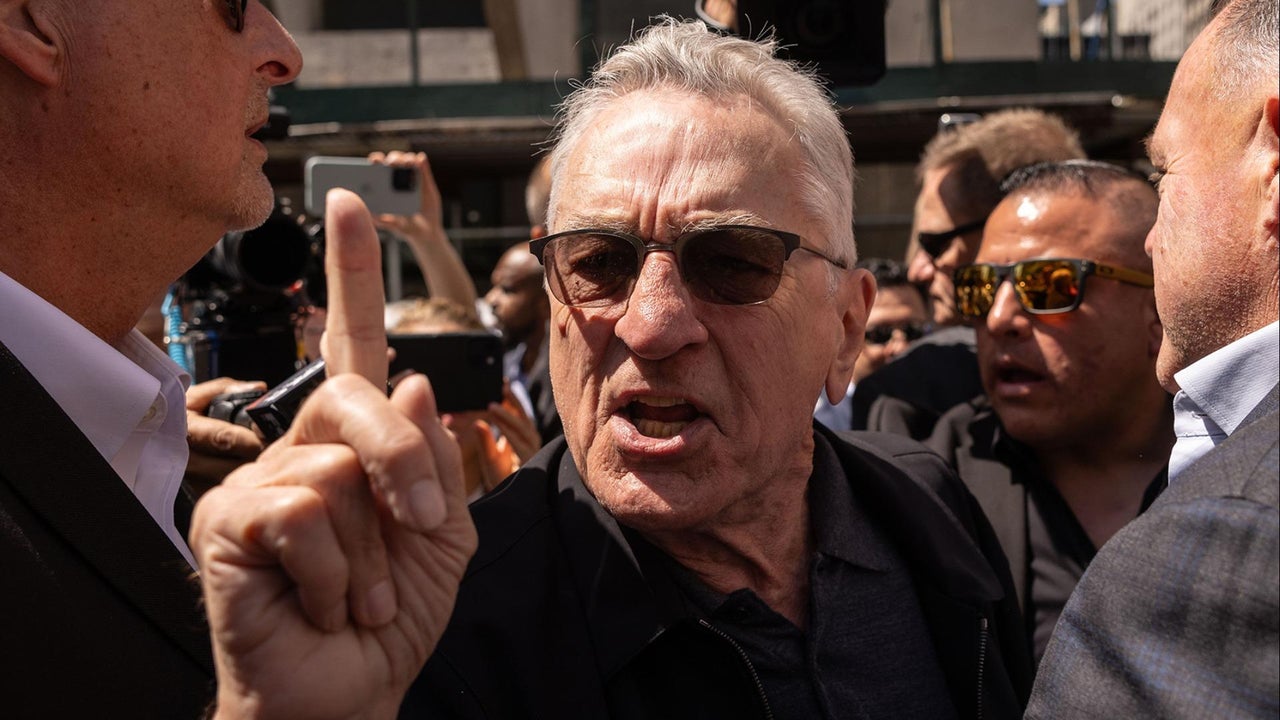
In a startling turn of events, Hollywood reels with the news of Mel Gibson’s withdrawal from a highly anticipated $50 million project, citing irreconcilable ideological differences with his co-star, the iconic Robert De Niro. The decision has triggered a flurry of discussions about the intricate interplay between personal convictions and professional partnerships in the entertainment sphere. This article dives into the intricacies surrounding the project, the rationale behind Gibson’s departure, and the broader ramifications of such clashes within the realms of Tinseltown.
The abandoned venture, initially veiled in secrecy, promised to be a cinematic tour de force, backed by substantial financial backing. Fans and insiders alike eagerly awaited the synergy between two esteemed actors, each renowned for their indelible contributions to the cinematic landscape. However, Gibson’s sudden exit has left many pondering the project’s fate and the unseen dynamics behind the curtains.
Insiders privy to the production disclose that the discord between Gibson and De Niro stems from fundamental ideological disparities, particularly concerning what some perceive as the escalating ‘wokeness’ pervading Hollywood. While De Niro has been outspoken about his socio-political stances, Gibson, known for his own tumultuous history, purportedly found the project’s thematic trajectory excessively aligned with what he views as an overabundance of political correctness.
Mel Gibson’s trajectory in Hollywood has been a rollercoaster ride, marked by stellar performances intertwined with controversies. The actor-filmmaker weathered public scrutiny in the past over remarks widely denounced as anti-Semitic and misogynistic. Despite these controversies, Gibson staged a remarkable career resurgence with successful ventures like “Hacksaw Ridge” and “Daddy’s Home 2.” His exit from the $50 million project raises pertinent inquiries about the sway of personal convictions on professional partnerships.

Robert De Niro, a titan in the industry, has never shied away from vocalizing his views on socio-political issues. The actor’s public persona is synonymous with progressive values and a dedication to leveraging his platform for advocacy. While De Niro’s ‘wokeness’ garners both praise and censure, the clash with Gibson spotlights the intricacies of navigating divergent ideologies within collaborative artistic endeavors.
With Gibson’s departure, the $50 million project hangs in limbo. The absence of such a towering figure in Hollywood could necessitate a reassessment of the project’s thematic trajectory and potentially precipitate delays or a complete overhaul. The incident underscores the susceptibility of high-profile projects to the personal convictions and dynamics of those involved.
News of Gibson’s exit has elicited a spectrum of reactions within the industry. Some argue that personal ideologies should not impede artistic collaborations, underscoring the significance of embracing diversity of thought within creative ventures. Others posit that artists ought to be cognizant of the potential ramifications of their beliefs on collaborative projects, particularly in an era where public sentiment carries considerable weight.
The clash between Gibson and De Niro is not an isolated incident of ideological disparities impacting Hollywood projects. The industry, often hailed as a bastion of liberal values, grapples with fostering cohesion among artists with disparate perspectives. This incident raises pertinent questions about the industry’s adeptness in navigating such divergences while endeavoring to produce captivating and inclusive content.
Beyond the immediate project, Gibson’s withdrawal incites reflection on the broader implications for Hollywood and the entertainment landscape at large. As society witnesses increasing polarization, the industry confronts the challenge of reconciling creative expression with commercial viability. The incident underscores the imperative for open dialogue and a nuanced comprehension of the intricacies surrounding divergent ideologies within the creative milieu.

Mel Gibson’s decision to withdraw from the $50 million project featuring Robert De Niro serves as a stark reminder of the intricate dance between personal convictions and professional partnerships in Hollywood. The clash of ideologies between these two illustrious actors underscores the enduring challenge of navigating diverse perspectives within the industry. As the entertainment panorama evolves, the incident prompts contemplation on the future of artistic collaborations and the role of personal beliefs in shaping the narratives that grace the silver screen.
